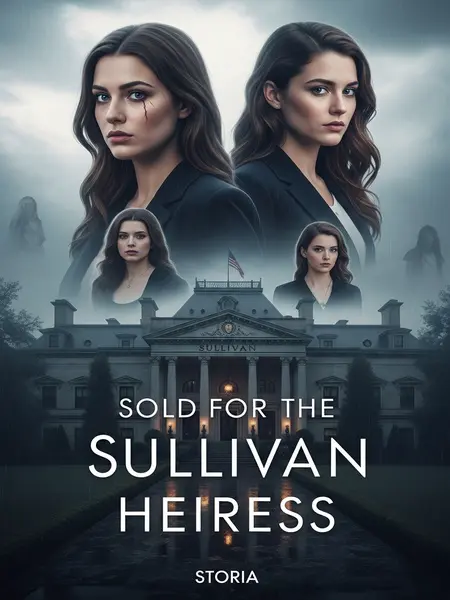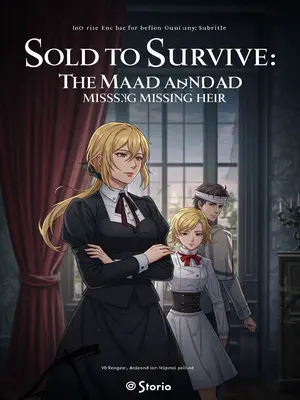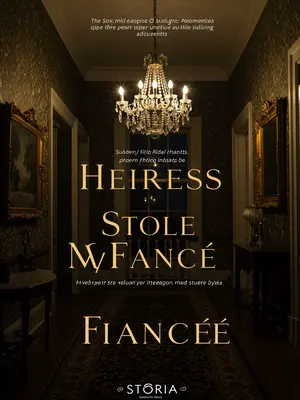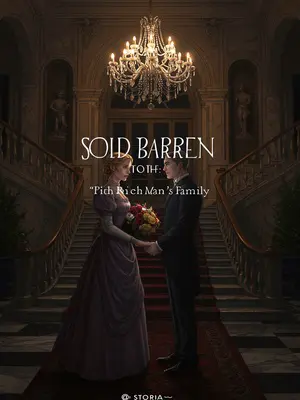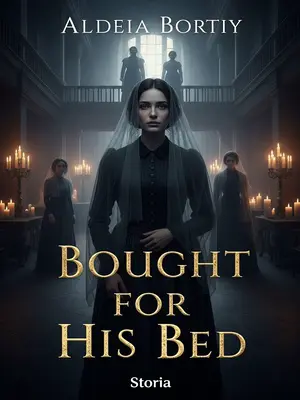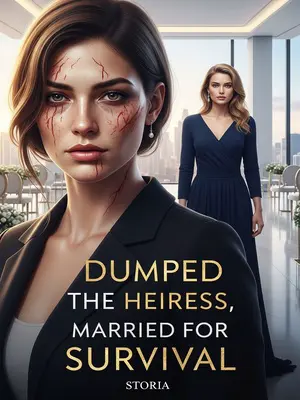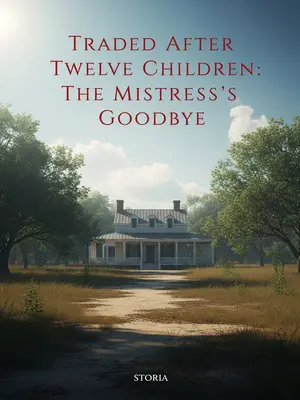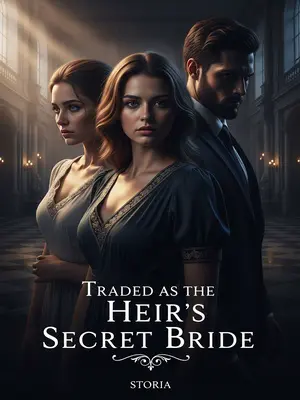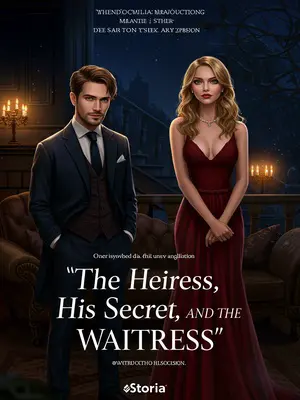Chapter 1: A Sullivan Christmas
When I was a kid, every Christmas, my dad would take my little sister and me over to Mr. Sullivan’s house to stop by and say Merry Christmas. I’d get a hundred-dollar bill in a holiday card—some old tradition for luck—but Rachel Sullivan always made sure I didn’t forget my place. She’d snatch my money and sneer, “Everyone says my dad is your dad’s boss. Your family’s just the help. If you want your Christmas money, you gotta bark for it. Like a mutt.”
Every time, the Sullivan living room was dressed up like a holiday postcard—giant glittering tree, gold ornaments, everything spotless. Cinnamon and pine filled the air, cut by the sharp scent of lemon polish on the marble floors. I’d spot their family photos lined up along the wall: the Sullivans all smiling in matching red sweaters, looking like a magazine ad. It hit me every time—how different their family was from mine, how out of place I felt in my thrift store sweater, while Rachel pranced around in her new holiday dress. The card was always crisp and cold, and Rachel’s words stung worse than the wind sneaking in whenever the door opened.
Mr. Sullivan looked stunned for a second, then put on his smooth, country-club smile and said to my dad, “Kids say things without thinking.”
He tried to play it off, but the tension in the room was thick enough to choke on. My dad just shifted uncomfortably, glancing at me with a look that told me to keep quiet. I knew that look. It meant: don’t embarrass us, don’t make a scene, no matter how much it stings. Mr. Sullivan’s words sounded polite, but everyone knew exactly what Rachel meant. The pecking order couldn’t have been clearer.
I was furious, but my father secretly kicked me under the table and whispered for me to hurry up and bark.
His shoe jabbed my shin, just enough to make me flinch, and his eyes pleaded—don’t make trouble, not here, not now. That was always his way: keep your head down, do what’s expected, and maybe you’ll get by. I clenched my fists in my lap, cheeks burning, humiliation and rage tangling in my chest. My dad’s voice was barely a breath, but it felt like a commandment. Bark, and we keep the peace—bark, and you get your money.
My little sister didn’t understand. She happily imitated a puppy’s bark, got the money, and then begged me to buy her a caramel apple.
She was so little, so easily pleased. She let out a high-pitched “woof,” her eyes wide and hopeful. Rachel rolled her eyes, but handed over the bill. My sister skipped out of the house clutching her prize, face aglow with the simple joy of sugar and cash. She tugged on my sleeve, already plotting out the flavors at the fairground cart on Main Street. Even then, I envied her innocence.
We sat together on the Sullivans’ front steps. My sister held her caramel apple, delighted, and let me take the first bite.
The winter sun was already fading, stretching long, blue shadows across the neatly shoveled walkway. Our breath steamed in the air as we huddled together on the cold concrete. The caramel stuck to my teeth, cloying and sweet, but my stomach felt hollow. For a moment, I let myself pretend everything was normal—just two kids sharing a treat, the world outside the Sullivan mansion momentarily distant.
Suddenly, several vans barreled into the Sullivans’ driveway. A group of men jumped out, faces masked, knives flashing in the headlights.
Tires screeched against the icy pavement, headlights glaring. Doors flew open, boots thudded, and the sharp metallic glint of knives flashed in the dusk. Men yelled—curses, threats, the sound of chaos erupting all at once. The night split open, all the Christmas warmth ripped away in an instant.
I was frozen in fear.
I couldn’t move, couldn’t even scream. My legs were lead, my mouth filled with the taste of caramel and terror. Everything slowed down; the world shrank to the thudding of my heart and the sound of my sister’s quick, panicked breaths next to me.
I heard Rachel Sullivan screaming. I wanted to grab my sister and run, but I saw my father pulling Rachel out instead.
Rachel’s shrieks cut through the noise, frantic and raw. I reached for my sister, but Dad’s big frame darted past us, his hand clamping around Rachel’s wrist. His face was set, jaw clenched, eyes wild. My stomach twisted as I realized he was moving her, not us, to safety.
He yanked us into the mudroom, hands shaking, and stripped off their coats. In a blur, he shoved Rachel’s frilly dress over my sister’s head. I stared, not understanding—why her?
We stumbled into the mudroom, shoes thudding on tile. My dad’s hands shook as he unzipped Rachel’s coat, shoving her into my sister’s ratty jacket. The dress—lacey, pink, expensive—slipped over my sister’s head. The zipper caught, and he yanked it up. The whole thing made no sense, but Dad’s urgency was contagious. My sister’s eyes went wide, but she stayed still, sensing the gravity of it all. The world outside was screaming, but in that cramped space, all I could hear was our breathing and the distant echo of gunshots.
Just moments before, Rachel had been showing off that dress to us, bragging that my dad’s whole year’s pay couldn’t buy it, and not even letting us touch it.
I remembered Rachel spinning in the living room, laughing, making sure her skirt twirled just out of my sister’s reach. “My daddy says your daddy works all year and still couldn’t get me a dress like this.” Her voice rang in my ears, sharp and cold as the December wind. My sister had watched, silent, her small hands pressed together, not daring to ask for a turn.
I didn’t understand why he dressed my sister in such an expensive outfit. I was too young to make sense of it, but I instinctively held my sister tightly.
Confusion knotted in my stomach. None of it added up—why trade coats, why the dress? I just knew my little sister was trembling in my arms, her caramel apple sticky against my jacket. I hugged her tight, trying to shield her from whatever terrible thing was happening outside, wishing I was old enough to protect us both.
Dad picked up Rachel, then grabbed my hand and started running.
He hoisted Rachel onto his hip, her long legs dangling, and yanked me after him. We barreled through the laundry room and out the back door, sneakers skidding on the icy steps. The noise outside was louder now: shouts, crashing, the terrible ring of metal on stone.
My sister tried to follow, but Dad kicked her out the door.
I saw her confused face, the dress bunched up around her knees, as Dad shoved her away. His foot caught her side, sending her stumbling onto the front walk. The caramel apple flew from her hands. I wanted to run to her, to pull her back, but Dad’s grip on my wrist was iron-tight.
The chaos outside was deafening, but my father suddenly shouted, “I found the Sullivan girl!”
He raised Rachel high, yelling for everyone to hear. The words were sharp, desperate, carrying over the clamor—“I’ve got the Sullivan girl! She’s here!” The implication was clear: he was holding the real prize, the one everyone wanted. My heart hammered as I realized what he’d done. The realization hit like a punch: he was protecting the Sullivans, not us.
My sister sat there, holding her caramel apple. That small, lonely figure became my last memory of her.
The world seemed to slow, the violence around us blurring into a distant roar. My sister sat on the edge of the steps, clutching her treat with both hands, bewildered and alone. The pink dress looked strange on her, too big, too fancy. She glanced around, searching for me, not understanding that her life was slipping away in that moment.
I still remember she was hurt from the fall. She obediently blew on her scraped knee and reached out, wanting me to hold her.
Her lip trembled as she wiped at the blood on her knee. She reached out, wordless, asking for comfort the way only a little kid can. I could see the trust in her eyes—the certainty that I’d come for her, that I wouldn’t leave her behind. My hands shook with the need to reach back, to save her, to do something.
I cried and screamed, trying to grab her hand, but I could only watch as she faded further and further away.
My voice broke, rough and raw, but Dad’s grip kept me back. My sister’s hand hovered in the air, just out of reach, as strangers swarmed around her. The door slammed between us. Through the glass, her figure blurred and shrank, swallowed by the chaos. I screamed myself hoarse, helpless, every sound echoing back at me like a cruel joke.
That night, my sister became the decoy that drew everyone’s attention, allowing Rachel and her father to escape alive. The Sullivans then ordered my father to gather men for a desperate counterattack that night, ultimately seizing control of the entire county’s coal mining business.
I learned later that the news went around the whole county before sunrise: the Sullivan heiress had narrowly escaped an attack, the brave help had saved her. Behind closed doors, deals were struck, alliances made and broken over whiskey and handshakes. My father, battered and exhausted, was sent to rally the men. That was the way things worked in coal country—violence was currency, and the Sullivans knew how to spend it.
